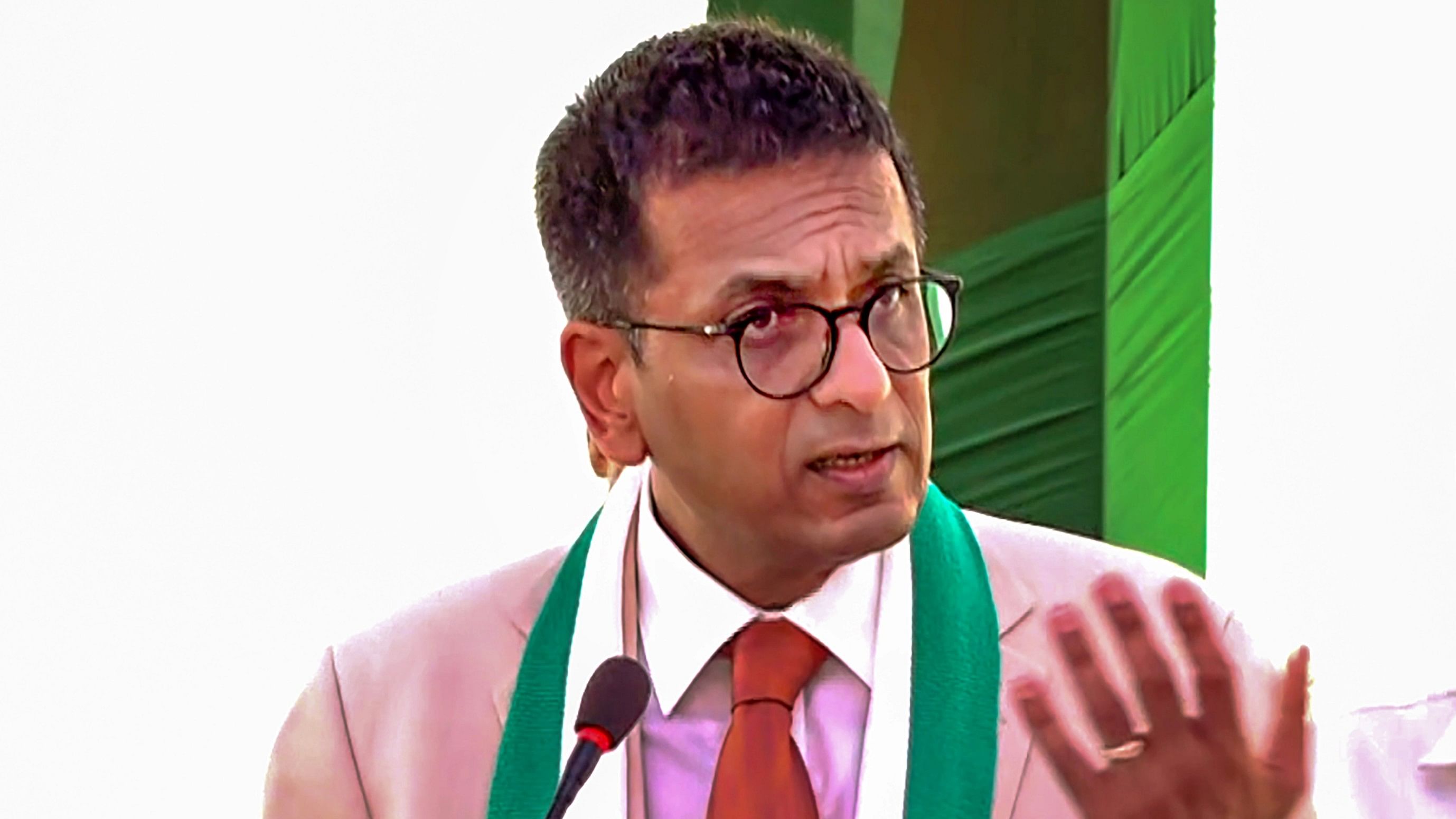
Chief Justice of India (CJI) Justice DY Chandrachud.
Credit: PTI Photo
New Delhi: Chief Justice of India D Y Chandrachud on Sunday said that the Supreme Court is not the sole guarantor, but it is the final power that may be used to liberate, emancipate and include, but never to oppress or ostracise.
Presiding over a ceremonial bench attended by all sitting judges, high courts' Chief Justices, several former judges, Attorney General R Venkatramani and Solicitor General Tushar Mehta, he said that the art of judging must be free of social and political pressure and from the inherent biases which human beings hold.
The CJI said efforts are being made from within the institution to educate and sensitise judges across courts to unlearn their subconscious attitudes inculcated by social conditioning on gender, disability, race, caste and sexuality.
The ceremonial bench was also attended by Chief Justices of Bangladesh, Sri Lanka, Nepal and other countries.
In his speech to mark the commencement of diamond jubilee year of the Supreme Court, he said an independent judiciary does not merely mean the insulation of the institution from the executive and the legislature branches but also the independence of individual judges in the performance of their roles as judges.
He said this court must secure the respect of citizens for it to establish itself as a legitimate institution.
On pendency, the CJI said currently, a total of 65,915 registered cases are pending before the Supreme Court.
"We need to ask hard questions on what needs to be done. There has to be a radical change in the approach to decision making," he said adding if we do not make hard choices and take difficult calls to resolve these pressing issues, the euphoria generated from the past may well be short-lived.
On disagreement between benches on various issues, the CJI said it is in this dialogical process between different benches that a conclusion closest to the constitutional framework is reached.
“In multiple voices, we speak both to the present and the future. We may be, as it is sometimes called, a polyvocal court. But the strength of our polyvocal nature lies in its ability to adapt dialogue as a processual instrument in bringing together a synthesis of ideas. The synthesis in our court brings together diversity and respects inclusion,” he said.
